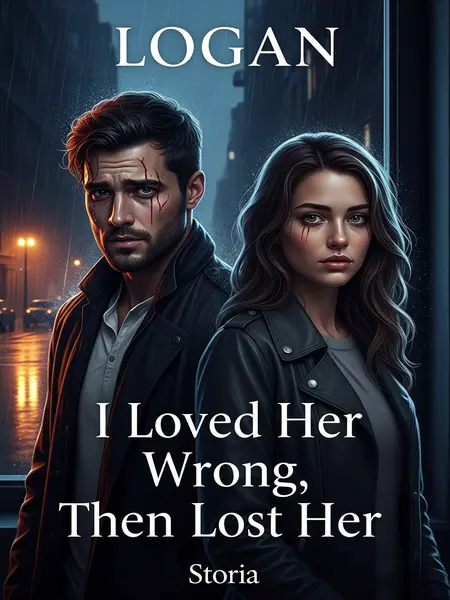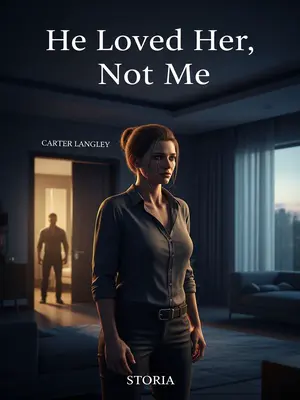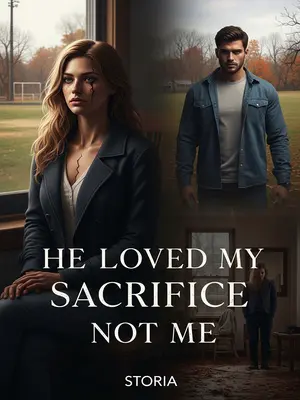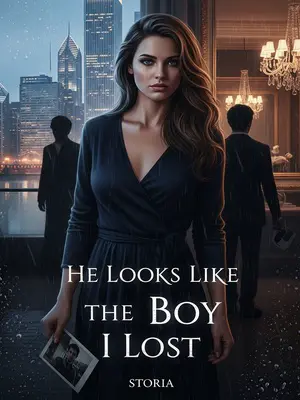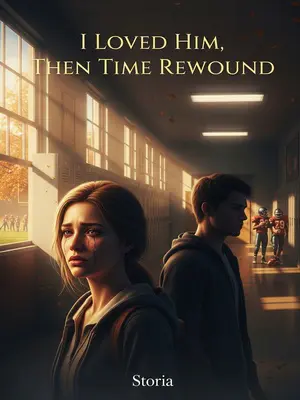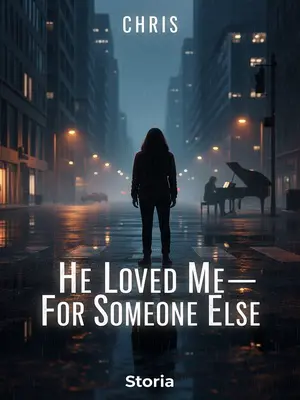Chapter 1: The Diary and the Goodbye
Purest Hatred.
Or maybe just: The Year Everything Fell Apart.
When I reached for my wife's hand, she'd always pull away, her eyes suddenly cold—like winter settling in behind her lashes. The moment her fingers slipped from mine, it was as if the temperature in the room dropped. I’d feel a sting in my chest, but I tried to brush it off, telling myself it was nothing. Still, the memory of her touch lingered, sharp and fleeting.
I remember the first time I noticed it—the subtle way her fingers would stiffen, knuckles turning white just before she slipped free. Holding her hand felt like trying to catch a snowflake: beautiful for a heartbeat, then gone before you could even register the warmth. I never asked her why. Maybe I was scared of what she'd say. Or maybe I was just too tangled in my own problems to realize how much it hurt her. That realization, when it came, was like a slap.
After she died, it was like someone turned up the volume in my head—suddenly, a rush of comments flooded my mind:
[The heroine’s so stubborn—she won’t even admit she craves a touch. Well, now she’s gone, and she’ll never know what it feels like.]
[She kept a diary. If the hero ever read it, she’d be so mortified she’d come back from the grave.]
[It’s in the fourth drawer from the left in her home office.]
These voices tumbled over each other, sounding like strangers at first. But maybe they were just my own regrets talking, replaying every mistake, every missed sign. Funny how memory can blindside you—like a freight train out of nowhere, when it’s already too late to change anything.
I opened the drawer—and there it was, just like the voice in my head said: a battered, leather-bound diary. For a moment, I just stared at it, the weight of everything pressing down on my chest.
The leather was cracked and softened at the edges, worn down by years of anxious, fidgeting fingers. I could almost picture her there, sitting at her desk, tucking a loose strand of hair behind her ear, scribbling secrets she’d never say out loud. The diary still smelled faintly of her perfume—wildflowers after a rain, delicate and bittersweet.
Underneath the diary, my hand brushed against a folded medical report. I hesitated, heart thudding, before pulling it free.
I turned it over and saw her name: Autumn Reed.
Diagnosis: Severe touch starvation disorder.
Doctor’s note: Physical contact with loved ones can alleviate symptoms.
I stared at the words, my brain refusing to process them. At first, it was just blankness. Then the meaning crashed in, hard. All those times I’d thought she was cold or distant—it wasn’t about me. It wasn’t even about her. It was something neither of us knew how to fight, and we’d both lost.
The voices piped up again:
[Her illness is like Franklin on a seesaw—no sense of balance.]
[Girl, you need help.]
[It’s tragic—she’s so strong, but just can’t let herself reach out to him.]
It felt like the universe was mocking us, narrating every misstep, every missed chance. If only I’d listened. If only she’d let herself ask for help. But pride’ll kill you before you ever get the chance to ask for help.
Autumn and I got married by accident. Yeah, you read that right—by accident.
My business crashed, and everyone I knew disappeared like leaves in a hurricane.
That year, my phone was dead silent. Friends who used to fill my calendar just vanished. I’d always believed loyalty lasted forever. Turns out, money can turn forever into nothing, just like that.
Then Autumn Reed showed up—out of nowhere—and took charge of the mess I’d left behind.
She walked in with this strange calm, her voice steady as she sorted through the wreckage. She didn’t judge, didn’t pity me. She just rolled up her sleeves and started fixing things, one problem at a time. I never asked why she did it. Maybe I was too proud. Or maybe I was scared she’d say she only did it because she felt sorry for me.
To make it up to her, I broke things off with my girlfriend at the time. It felt like I was tearing out a piece of myself, but I told myself it was right. Gabrielle deserved more than a guy half-broken, and Autumn—she never asked for more than I could give, anyway.
After that, Autumn and I kept our distance—sharing a house, sharing a bed, but living like strangers for three years. It was weird. It was lonely.
We had routines, not conversations. Polite nods instead of kisses. Late at night, I’d hear her footsteps in the hallway, soft and hesitant, like she was afraid to wake the ghosts between us. Sometimes I wondered if she even wanted me there at all.
She was ice-cold to me during the day, always composed and reserved. She’d drift through the kitchen in the morning, coffee in hand, her voice clipped and efficient. At work events, she was all business—nobody ever saw past her mask. It was like living with a stranger who just happened to share your last name.
But at night, she’d slip into bed beside me after I’d already fallen asleep. Her side of the mattress was always cool. I could sense her there—lying perfectly still, like even breathing too loud might break the fragile silence. I never turned to look. I told myself it was better not to know what she was thinking.
She never tried anything—just lay there, stiff as a board. Sometimes I wondered if she was even awake.
Didn’t bother me. No expectations, no obligations. I was happy to be left alone—or at least, that’s what I told myself. Wasn’t that easier?
I convinced myself that was what I wanted. No messy feelings, no late-night confessions. Just peace and quiet. But honestly, the quiet was starting to feel like a tomb.
Then one night, I woke up and caught her hugging my tie as she slept. I just stared, totally thrown off.
Autumn, that’s just weird, I thought, blinking in disbelief.
She jerked awake, eyes wide with embarrassment. For a split second, she looked so lost—like a little kid caught sneaking cookies before dinner. I wanted to say something, anything, but all that came out was silence. The awkward kind.
Her face drained of color, and she bolted from the room.
I heard the bathroom door slam, the lock clicking with a finality that echoed through the whole house. I just sat there, my tie still warm from her hands, wondering how I could have missed what she needed for so long.
Three days later, Autumn slit her wrists in the bathtub.
The water was pink with her blood when I found her. The steam curled around her body, her hair floating like black silk on the surface. I screamed her name until my throat was raw, but she never answered.
Her family doctor told me, voice gentle but words brutal:
Miss Reed was in a lot of pain before she died. The warm water kept her wrists from clotting. And her illness—if left untreated during an episode—could make her lose all hope of living. She always thought her condition was shameful, and asked me to keep it secret from you.
The doctor’s words hit me like a sledgehammer. I kept thinking, if only I’d known. If only she’d trusted me enough to tell me. But shame is a heavy thing—it can drown you before anyone even knows you’re sinking.
......
I opened Autumn’s diary.
